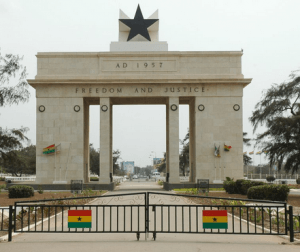Ghana is third freest country in Africa – report
 A new study on freedom across the globe in 109 countries, has reaffirmed Ghana as a hub of civil liberties and press freedom in Africa and as the freest on the African mainland.
A new study on freedom across the globe in 109 countries, has reaffirmed Ghana as a hub of civil liberties and press freedom in Africa and as the freest on the African mainland.
The 2016 edition of the annual Freedom in the World report, a global assessment of countries’ levels of political freedom and civil liberties by Washington-based think tank Freedom House, designated Ghana “free” with a press that was also found to be “free” in a previous report.
Only four African countries were ascribed “free” status both as a country and in the Freedom of the Press report 2015, also by Freedom House: Mauritius, Cape Verde, Ghana and Sao Tome and Principe.
All other African countries assessed by the report had at least one designation of “partly free” or “not free” in the two reports.
Mauritius and Cape Verde were tied with an average score of 90 out of 100 in the 2016 Freedom in the World, Ghana following with 83 and Sao Tome and Principe 81.
Given that the other three countries are African island states, the ratings suggest that Ghana is the freest country on the African mainland.
Of 195 countries worldwide, only 86 were found to be free, representing 44 per cent. A total of 59 (30 per cent) were designated “partly free” and 50, “not free” (26 per cent).
On a scale of 1 to 7, 1 being the most free and 7 the least free, Freedom House rates political rights in Ghana 1, and civil liberties 2.
Mauritius and Cape Verde were both rated 1 in political rights, while Sao Tome and Principe received a rating of 2 for both political rights and civil liberties.
This reaffirmation of Ghana as a hub of freedom comes amidst what Freedom House says is “the 10th consecutive year of decline in global freedom” – since 2006, countries that have experienced declines in world freedom have outnumbered countries that have made gains.
According to Freedom in the World 2016, the number of free countries decreased by three.
Around the world, countries such as the United States, Moldova, Montenegro, Turkey, Yemen, Honduras and Tajikistan, saw declines in freedom.
Among the reasons for “democracy’s troubled decade”, the report cites laws suppressing dissent around the world in countries like Thailand, Ethiopia and Turkey; China’s role as a model for economic growth at the cost of human rights and freedoms and amidst political repression; the authoritarian backlash that met the Arab spring; and new and sophisticated methods of censorship and propaganda messaging by China, Russia and the Islamic State militant group.
In Africa, freedom declined in Angola, Maldives, Morocco and Rwanda, and to depressing lows in Burundi, due to the assassinations, arrests, torture and violence that followed President Pierre Nkurunziza’s decision to run for a “constitutionally dubious” third term.
Six African countries were counted among the worst of the worst – the twelve countries with the lowest aggregate scores in political rights and civil liberties: Somalia, Eritrea, Sudan, Central African Republic, Equatorial Guinea and Western Sahara.
By Emmanuel Odonkor
